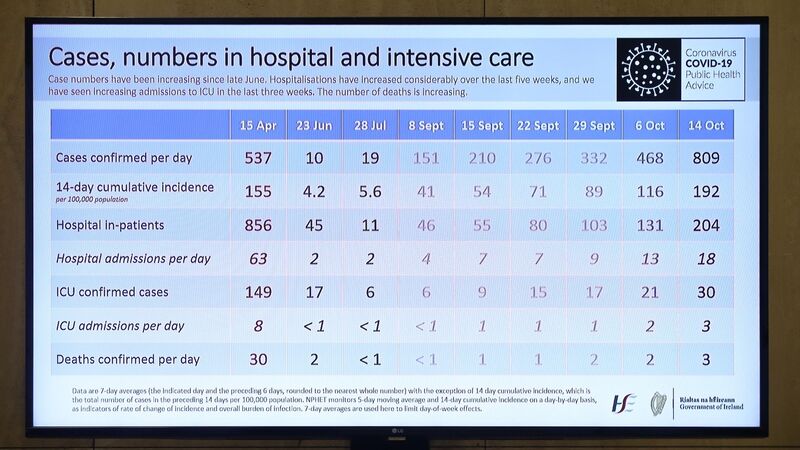On the day the Government torched 320,000 jobs (fewer than half of which will return), and sprayed another €18bn on the economy and services (one quarter of it on the national basket case), the General Register Office issued updated mortality numbers for the first nine months, alongside the comparable figures for 2015 to 2019. These figures are riveting reading for the citizen, but are evidently not the required kind for the State. If they were, those supposedly in charge of the Covid response could not, would not, in conscience, put upon the people as they are doing.
What’s clear is that the number of deaths from January to September is steady between 2015 and 2019, averaging just under 23,200, around 85 a day. There’s a noticeable rise in 2018 (+887), followed by a bigger fall in 2019 (-1,103), followed by an even bigger drop in 2020 (-2,634). The big rise in deaths this year occurs in April, and only in April. The total in every other month this year is lower than the average number for the same month over the period 2015-2019. April 2020 shows an increase of 624 deaths over March, while May 2020 shows a decrease of 996 compared to April.
Already a subscriber? Sign in
You have reached your article limit.
Subscribe to access all of the Irish Examiner.
Annual €130 €80
Best value
Monthly €12€6 / month
Introductory offers for new customers. Annual billed once for first year. Renews at €130. Monthly initial discount (first 3 months) billed monthly, then €12 a month. Ts&Cs apply.












